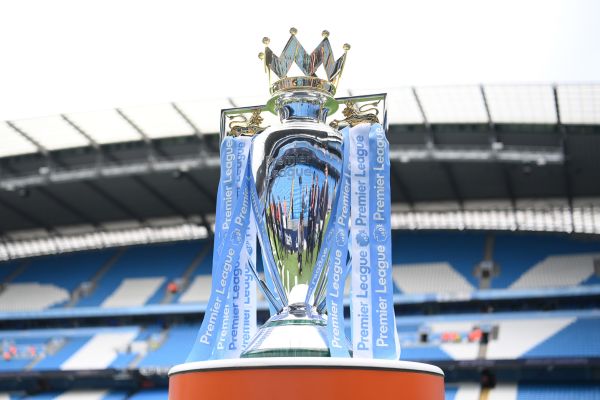What is Relegation in the Premier League? A Complete Guide
1 year agoThe recently concluded Premier League season has brought an end to the intense competition at both ends of the table. The top group has determined the teams securing qualification for the prestigious Champions League and Europa League tournaments. However, the relegation zone has seen the unfortunate demotion of Leicester City, Leeds United, and Southampton. In this article, let's explore what is relegation in the Premier League and how it affects clubs.
What is relegation in football?

Relegation refers to the process in football where teams are moved from a higher division to a lower division based on their performance in the league. In the Premier League, relegation involves the bottom three teams at the end of the season dropping down to the Championship, the second tier of English football.
How does relegation affect teams in the EPL?

Relegation in the Premier League has far-reaching consequences for the teams involved, impacting crucial aspects such as the financial health of the club, revenue streams, player wages, debts, and overall financial stability. When a team drops down to the Championship, these factors can deteriorate rapidly, potentially leading to a crisis for the relegated clubs.
Regarding club revenue
Relegation from the Premier League results in a substantial and abrupt decline in a club's revenue, typically ranging from 50% to 70%. This significant drop in revenue can be observed in various examples, such as Fulham, who experienced a 58% decrease in revenue when they were relegated during the 2019/20 season. Similarly, Norwich and Watford suffered a 52% decrease in revenue during the 2021/22 season due to their relegation. Such drastic reductions in revenue pose significant challenges for clubs as they navigate the financial implications of playing in a lower division.
Reduction in broadcast revenue
Broadcasting rights currently serve as the most significant source of revenue for English clubs, with each Premier League team receiving an average of around £125 million. This revenue stream plays a crucial role in sustaining the clubs. However, for clubs in the relegation zone, this figure decreases to approximately £100-110 million. The situation worsens when a club is relegated to the Championship, as their broadcasting rights revenue can drop by up to 90%.
In the Championship, clubs in the lower tier receive a significantly lower amount, around £5-6 million, from broadcasting rights. This is a substantial decrease compared to what Premier League teams receive.
To aid relegated clubs, regulations have been introduced to provide financial support. In the first year after relegation, these clubs still receive around 55% of the previous season's broadcasting rights, similar to their time in the Premier League. This percentage decreases to 45% in the second season and 20% in the third season. However, if a team is immediately relegated in their first season after promotion, the support is limited to two years instead of three.
Nevertheless, there is ongoing debate regarding these parachute payments. As a club leaves the Premier League, they become one of the highest-earning entities among the teams competing in the Championship. This creates an unfair advantage compared to the teams that have been in the top tier for a longer period. The issue of parity and fairness within the financial structure of English football remains a topic of discussion.
Loss of advertising and sponsorship contracts
Relegated clubs not only experience a decline in broadcasting revenue but also face the loss of advertising and sponsorship deals. Brands typically prioritize associating themselves with Premier League teams rather than those in the Championship.
Consequently, many businesses include termination clauses in their contracts that allow them to end their partnerships as soon as their partners are relegated. This further adds to the financial challenges faced by relegated clubs, as they lose out on potential revenue from advertising and sponsorship sources.
Reduction in matchday revenue
Relegation from the Premier League also has a significant impact on ticket sales revenue for clubs. While there will always be a dedicated fan base that continues to attend matches regardless of the league, there are also many supporters who feel disappointed and become reluctant to watch matches in the lower tier.
To address this issue, most clubs that are relegated reduce ticket prices in an effort to appease their fans and encourage attendance. However, this directly affects the club's financial situation and further contributes to the challenges they face in sustaining their revenue streams. The reduction in ticket prices, while aimed at retaining fan support, can result in a decrease in overall revenue for the club. Balancing the need to attract fans with the financial realities of operating in a lower division becomes a delicate task for the relegated clubs.
Concerning the players

Burden of player wages
Player contracts and wages are crucial factors closely tied to the dynamics of the transfer market following a club's relegation. When clubs are in the Premier League, they often strive to secure high-quality contracts and offer substantial wages to compete in one of the most competitive leagues worldwide.
It is not uncommon for star players in mid-table Premier League teams to earn comparable wages to their counterparts in top clubs from other European leagues. However, this generosity in player remuneration leads to the inflation of wage bills, which becomes one of the major expenses for the club. The situation quickly spirals out of control once a team is relegated.
For instance, The Merseyside club Everton typically maintains a wage bill ranging from 90% to 95% of its revenue in order to retain their star players. However, this creates a precarious situation because if Everton were to be relegated, their financial resources would immediately decrease by at least half, while player remuneration would pose a significant threat to the club's stability. Such wage structures, similar to Everton's, are not uncommon in the Premier League.
The imbalance between revenue and wage bills becomes pronounced when a club faces relegation. The financial strain caused by high player wages in the Championship, combined with decreased revenue streams, can severely impact a club's stability and ability to sustain itself. Clubs often face the challenge of renegotiating contracts, offloading high-earning players, or making significant adjustments to their wage structures to align with the financial realities of playing in a lower division.
Forced to sell players below their market value
Relegated clubs are often compelled to take immediate measures to balance their expenses, leading to the departure and sale of a significant number of players. Failing to sell these players means the club continues to bear the burden of their wages, pushing them closer to financial disaster.
When the transfer window opens following relegation, an even more challenging scenario unfolds. Other clubs in the Premier League, as well as those in other leagues, fully understand the urgency of the recently relegated teams. They capitalize on this knowledge and employ tactics to manipulate prices in their favor. Desperation reaches its peak, and in the majority of transfer deals, the recently relegated clubs are forced to part ways with players for prices lower than their actual value.
Player retention and transfers
For teams that fail to retain their top-flight status, holding onto key players for squad rebuilding becomes a challenging task. Many star players, and even less prominent ones who believe they are too good to play in the Championship, express their desire to leave as soon as the season ends or even before their team is officially relegated. Recent examples like James Maddison and Youri Tielemans publicly expressing their intentions to leave Leicester City, regardless of whether the Foxes stay in the Premier League or not, highlight this trend.
It is difficult to blame these players as they prioritize their own careers. Spending just one year in the Championship can risk them being forgotten, not to mention the potential decline in form or unexpected injuries that could impact their market value. Consequently, there is an increasing trend of players seeking free transfers or negotiating reduced contract termination fees when teams are relegated. Ultimately, the financial losses are borne by the relegated Premier League clubs.
Financial crisis risks
Debt and the overall financial landscape are indeed crucial factors that significantly impact the survival of a football club, particularly in the aftermath of relegation. If the costs are not managed carefully, the financial obligations can become the primary cause of erosion for the relegated clubs. Various debts can accumulate and eventually lead to a severe financial crisis.
A prominent example illustrating this is Leeds United, once a powerhouse in English football. The club's relegation in the 2003-2004 season was followed by a prolonged struggle to return to the Premier League. Leeds United's ambition to regain success in the early 21st century led to significant borrowing, which ultimately resulted in their rapid decline.
What is even more alarming is that such examples are not uncommon in the present day. Many clubs, in their pursuit of success, bring in numerous new signings. However, if these high-profile signings fail to meet expectations and the team's performance deteriorates, it can push the club to the brink of relegation. The financial burden of substantial transfer fees, high wages, and ongoing financial obligations can strain the club's resources and increase the risk of financial instability.
Which teams were relegated last season, and which ones are relegated this year?
Last season, three teams were relegated from the Premier League. Norwich City, struggling throughout the campaign, finished at the bottom of the table. Watford, back in the top flight, couldn't secure enough wins to stay up. Burnley also ended up in the Championship due to defensive weaknesses.
In the 2022/23 season, the battle to avoid relegation is heating up. Leicester City, Leeds United and Southampton are the ones to leave as for their low performance.
To keep up with the latest news about football, players, transfer rumors, and the hottest matches, follow ANZ Football.
Other news

How To Watch All Premier League Games in UK Today
1 year ago
Top 10 Coolest Football Club Logos in the World
1 year ago
What is A Derby in Football? Meaning and Origins
1 year ago
Everything You Need to Know About New Premier League Rules for the 2023/24 Season
1 year ago
Where and How to Watch the 2023-24 Premier League in the UK
1 year ago